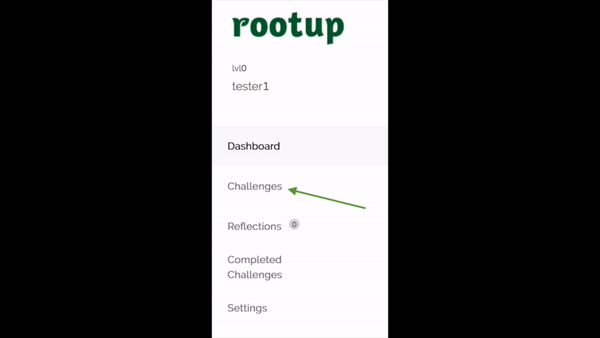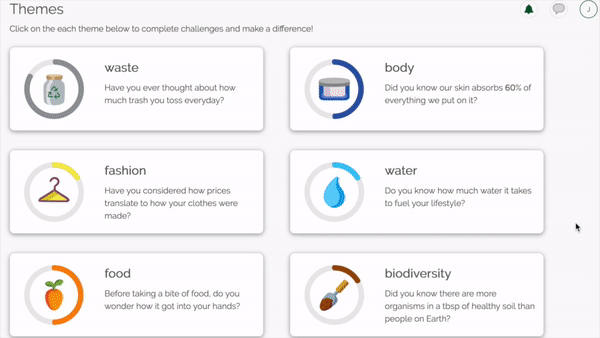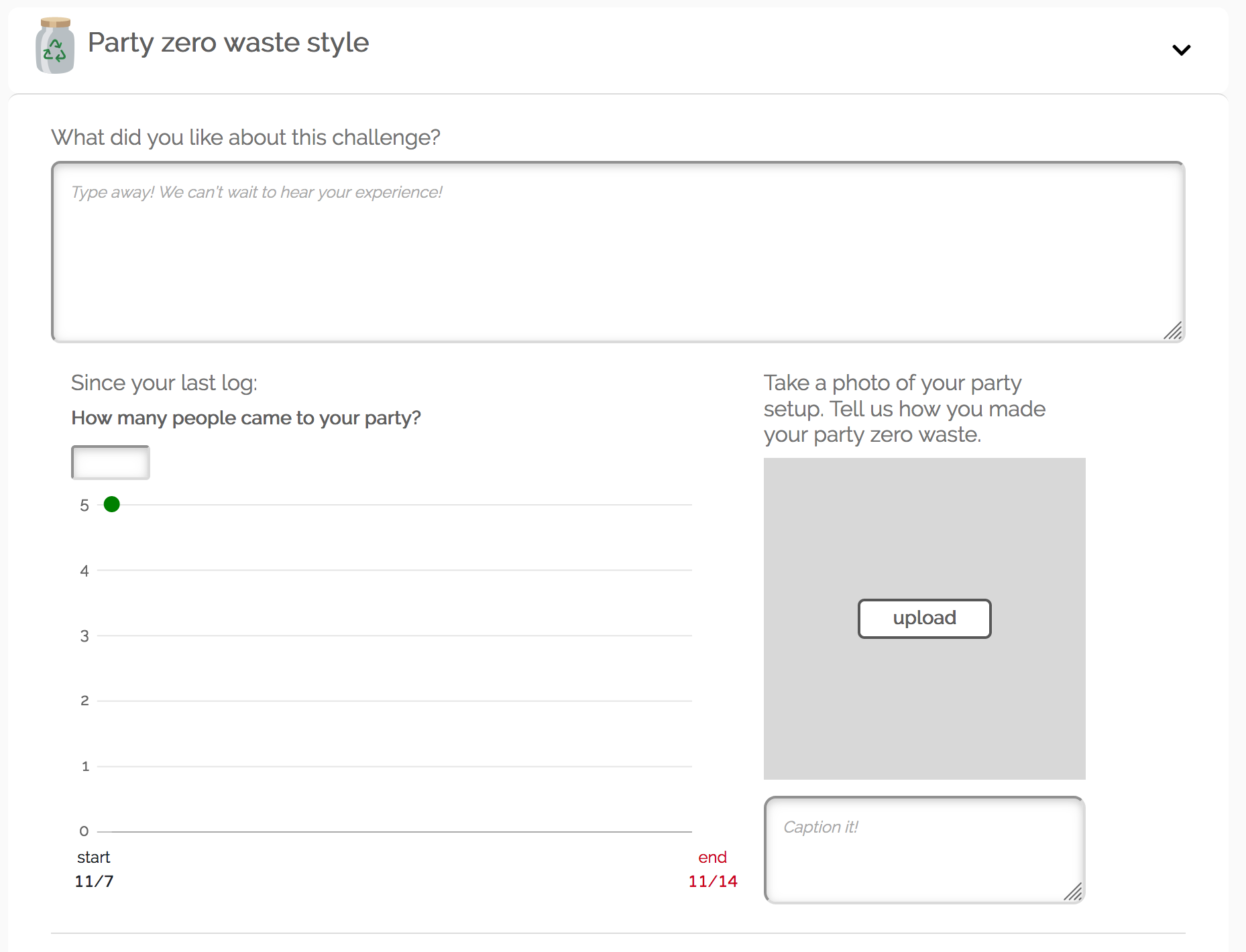Take action now. To track your impact, sign up here!
food
Before taking a bite of food, do you wonder how it got into your hands?
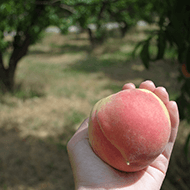
Know your food
What makes food so important?
Food should nourish us. However, the ways food is grown + processed impact the nutritional quality + quantity we get. To make healthy decisions, we need to ask: what are we eating? Were regenerative practices used to grow the food we eat?
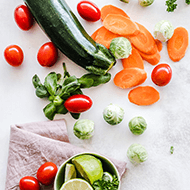
Zero your food waste
How problematic is food waste?
1/3 of food produced globally(!) each year is wasted, while there are hungry people + talk about not having enough food to feed the human population. To make things worse, food scraps end up decomposing in landfills, producing methane, worsening climate change.
TAKE ON THIS CHALLENGE
SHOW LESS
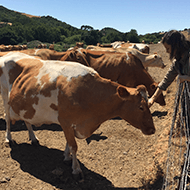
Eat meat responsibly
How does meat impact the environment?
The livestock industry has resorted to deforesting land for grazing animals & confining them in enclosed spaces, leading to air + water pollution and land degradation. This environmental stress negatively impact the animals' health, and that's just not right.
TAKE ON THIS CHALLENGE
SHOW LESS
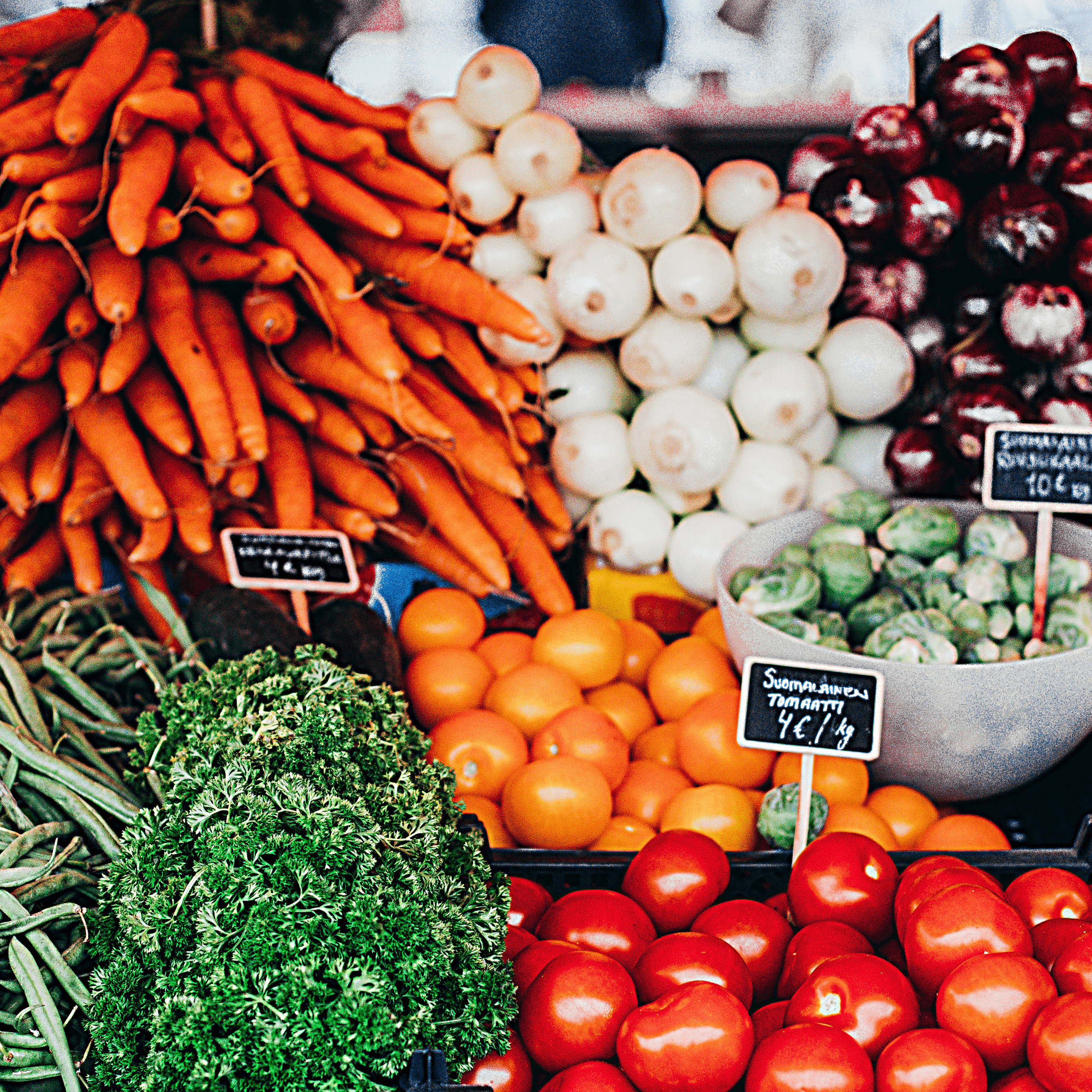
Go to farmers' markets
Why do farmers' markets matter?
Farmers' markets are a galore of freshly harvested fruits, vegetables, nuts, and other goodies at peak nutrition levels. Shopping there means uplifting farmers & keeping your hard-earned money in the local economy, which stimulates job creation and local businesses.
TAKE ON THIS CHALLENGE
SHOW LESS
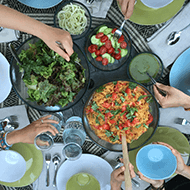
Cook a FLOSN meal
Why FLOSN?
Eating healthy shouldn't be a compromise. Nutrient-dense foods should be affordable. Fresh + local produce = more nutrients. Seasonal produce = more available + affordable. Organic foods = little to no toxic chemicals. Non-GMO foods = not genetically modified. Claim space on your plate for REAL food.
TAKE ON THIS CHALLENGE
SHOW LESS
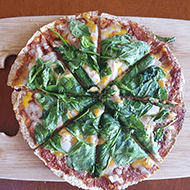
Make your own snacks
Why make my own?
There are LOTS of unhealthy snacks on the market. Read the ingredients list & you'll find they're loaded with many forms of refined sugar (e.g. cane sugar, high fructose corn syrup) , imitation flavors (e.g. natural and artificial flavors), and other unhealthy additives that weaken your body.
TAKE ON THIS CHALLENGE
SHOW LESS

Support the ocean
How does fish consumption relate to the environment?
Industrial-scale fishing has driven fish populations to all-time lows and some towards extinction. Toxins such as mercury, dioxins, antibiotics, and pesticide residue are increasingly found in the fish we eat.
TAKE ON THIS CHALLENGE
SHOW LESS
biodiversity
Did you know there are more organisms in a tbsp of healthy soil than people on Earth?
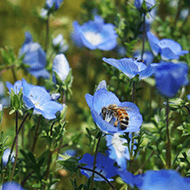
Biodiversity 101
What is biodiversity?
Nature is a complex system, and biodiversity is the checks and balances in nature. A big loss in biodiversity (in water, soil, and land) imbalances our world, putting food security + human health at risk. This is why it's so important to care for soil health + promote biodiversity.
TAKE ON THIS CHALLENGE
SHOW LESS
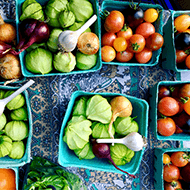
Shop local & organic
How does shopping relate to biodiversity?
Biodiversity isn't just about growing plants. It's also about supporting gardeners + farmers who practice regenerative organic agriculture. Vote with your hard-earned dollar. Support these people because you're enabling them to continue their work & foster biodiversity.
TAKE ON THIS CHALLENGE
SHOW LESS
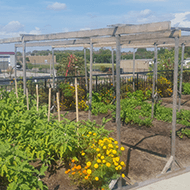
Volunteer in garden
Why are gardens important?
Gardening (with regenerative practices) boosts biodiversity! Growing a variety of plants cultivates healthy soil that protects + strengthens ecosystems. If disease or pests take out a population of organisms, biodiversity keeps the ecosystem thriving.
TAKE ON THIS CHALLENGE
SHOW LESS
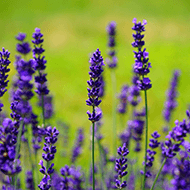
Plant perennials
Why should I plant perennials?
Perennials grow a deeper root system that improves soil structure. This creates a stronger ecosystem that spreads nutrients + moisture throughout the soil to other plants, so they can all thrive together.
TAKE ON THIS CHALLENGE
SHOW LESS

Attract pollinators
Have you ever seen pollination in action?
Watch this. Pollinators, particularly bees, are responsible for 1/3 of the world's food supply. The problem? Lots of bees are dying due to global warming, pesticide use, and habitat loss. Growing pollinator-friendly plants provides more natural habitats for pollinators to thrive.
TAKE ON THIS CHALLENGE
SHOW LESS
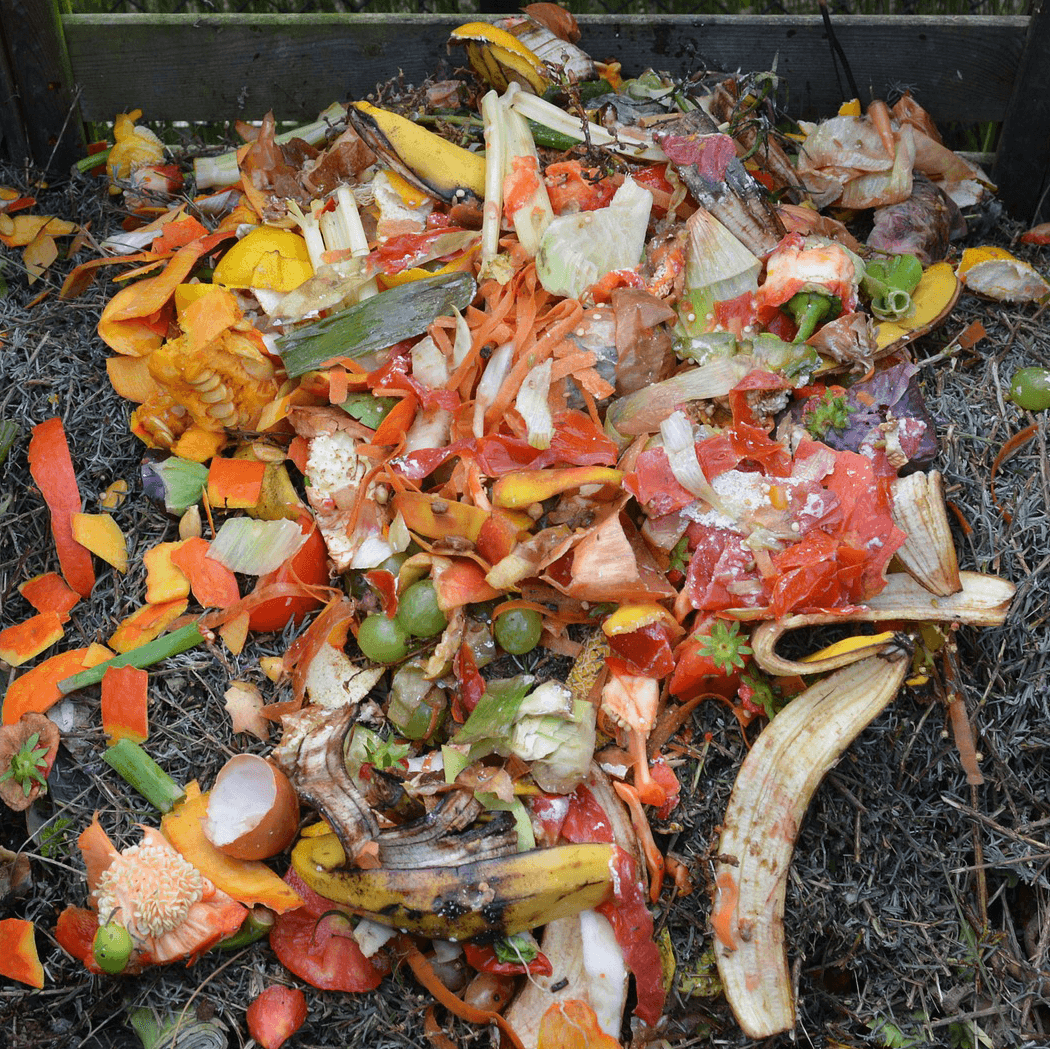
Start a compost pile
What's the big deal about composting?
Did you know soil houses 1/4 of the world's biodiversity? Soil isn't just dirt. It's made of minerals, water, air, organic matter, and organisms. A loss in any of these can be a threat to our ecosystems, food security, and weather pattern stability.
TAKE ON THIS CHALLENGE
SHOW LESS

Ensure public space safety
Do you spend time outdoors?
If your community regularly sprays toxic chemicals to manage pests in the area, this is a problem. They (e.g. pesticides) spread through air + touch, making their way into our bodies, marine ecosystems, and wildlife. This puts people, animal, and the environment's health at risk.
TAKE ON THIS CHALLENGE
SHOW LESS
water
Do you know how much water it takes to fuel your lifestyle?
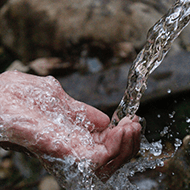
Track your usage
What's your water footprint?
It's not just about how long we shower -- our direct water footprint. No, our largest footprint is indirect, coming from our diet, purchases, and transportation. LARGE amounts of water is needed to grow the food we + animals eat, power manufacturing processes, and obtain fuel.
TAKE ON THIS CHALLENGE
SHOW LESS
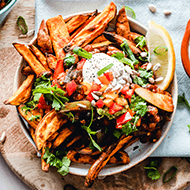
Eat plant-based
Why plant-based?
A plant-based diet's water footprint is ~1/2 that of a meat-based diet because meat has HUGE water footprints. The process of raising livestock, particularly cattle, requires THOUSANDS of pounds/kilos of crops, which takes an immense amount of water to grow.
TAKE ON THIS CHALLENGE
SHOW LESS

Cruise lightly
What is transportation's impact?
It takes ~3/4 gallon of water to extract, refine, and transport the gas used to drive 1 mile. The water footprint of fuel adds up as you travel farther + take more trips.
TAKE ON THIS CHALLENGE
SHOW LESS
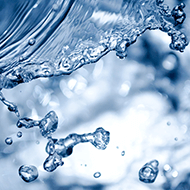
Get a bucket buddy
Why should I collect my shower water?
We don't have an infinite supply of clean water. 663 MILLION people in the world don't have clean water readily accessible, while you fortunately do. Oftentimes, the water that come out of faucets and showerheads is more than what we actually need though.
TAKE ON THIS CHALLENGE
SHOW LESS
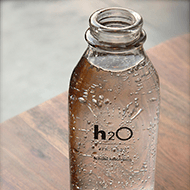
No more single-use bottles
What's the problem with single-use water bottles?
It takes 2x more water to make the plastic bottle than to fill it & costs 2000x more than tap water! That's not cool. Bottled water companies make BILLIONS of $ by marketing their water to be 'safer' than tap water (not always true) while contributing to plastic pollution.
TAKE ON THIS CHALLENGE
SHOW LESS
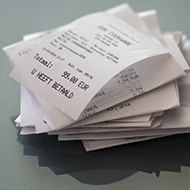
Skip the slip
What's the problem with paper receipts?
What's the point of printing them if you're going to trash it? 9 BILLION gallons (34 billion liters) of water is used to produce receipts, in the US alone. And, 93% of receipts are coated with BPA and BPS, nasty stuff that cause developmental health problems.
TAKE ON THIS CHALLENGE
SHOW LESS
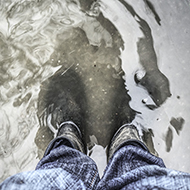
Raise awareness
What's the impact clothing?
~8,000 synthetic chemicals are used to transform materials into textiles, contributing to 20%(!!) of industrial water pollution. Growing cotton accounts for 16% of global insecticide usage, which gets washed into water supplies + soil. Blech! Basically, making new clothes is resource intensive + polluting.
TAKE ON THIS CHALLENGE
SHOW LESS
fashion
Have you considered how prices translate to how your clothes were made?
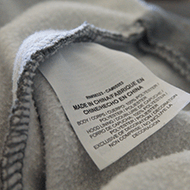
Know your clothes
What does it take to make new clothes?
LOTS of resources (water, dyes, materials, fuel + more). Particularly for fast fashion, low cost labor is exploited abroad to drive profits. The typical non-circular lifespan of clothes worsens fashion's impact; most clothes aren't reused and properly donated, ending up in landfills + oceans.
TAKE ON THIS CHALLENGE
SHOW LESS

Take a shopping break
What can you do instead of shopping?
The time + money spent keeping up with the latest trends and deals adds up. (Is that t-shirt on sale necessary?) If you have clothes to wear for a week, you probably don’t need any more clothes. Unless, your clothes are falling apart, or you need to freshen up your style.
TAKE ON THIS CHALLENGE
SHOW LESS
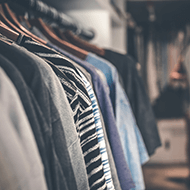
Keep clothes useful
Why is donating not necessarily "good"?
In the US, less than 10% of donations is resold or reused. The rest is often shipped to another country, which undercuts the country's local textile industry. People think they're doing good because they're donating, but they may actually be contributing to putting people in other countries out of work.
TAKE ON THIS CHALLENGE
SHOW LESS
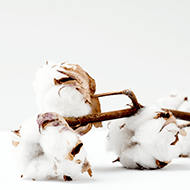
Find better clothing
How can I avoid fast fashion?
Choose quality over quantity. Wear something more to decrease cost per wear. (Ex: $60 pants worn 2x a week per year = ~$0.57 per wear!) Thinking long-term and buying better diminishes the impact of clothes. What's even better: buy secondhand, because you're extending the lifespan of something that already exists.
TAKE ON THIS CHALLENGE
SHOW LESS
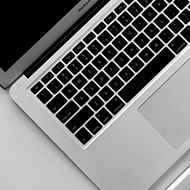
Contact fashion brands
Why the power move?
98% of garment workers aren't paid a living wage, and 75% of them are women(!!). This is NOT okay. Boycotts aren't the solution though cause workers can lose their jobs. Fashion brands will continue exploiting workers unless customers pressure them otherwise.
TAKE ON THIS CHALLENGE
SHOW LESS
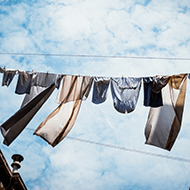
Clean naturally
Why does the laundry detergent I use matter?
Whatever is in your laundry detergent ends up in wastewater, which eventually enters the ocean. If the ingredients in the detergent isn't safe for you, it's not safe for the environment. Ingredients in laundry detergent can also irritate the skin, which makes wearing newly-washed clothes uncomfortable.
TAKE ON THIS CHALLENGE
SHOW LESS
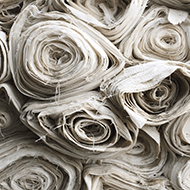
No more synthetics
What's the problem?
About 1.4 million TRILLION pieces of microfiber are in the ocean. The problem: this plastic absorbs surrounding toxins, causing gut impaction, hormone disruption, and liver damage in the animals that ingest it. These same animals rise up in the food chain onto our plates.
TAKE ON THIS CHALLENGE
SHOW LESS
waste
Have you ever thought about how much trash you toss everyday?
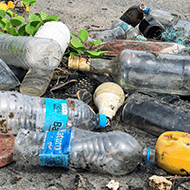
Audit your waste
Why is waste a problem?
There is more to a product than what you see. It takes materials, labor, energy to: source materials, run machinery, package products, and fuel vehicles for shipping. When you throw something away, especially after using it for a very short time, all those inputs are wasted. And the environment is stuck with more trash.
TAKE ON THIS CHALLENGE
SHOW LESS
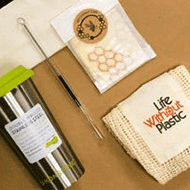
Practice refusing
Why should I say 'No thanks' to free stuff?
Taking free stuff you don't use much is a waste of resources. They'll probably end up in the trash or some donation pile. When you take 'free' stuff, you send the signal that more of these products should be made + bought, which is the wrong message when we actually don't use or need this stuff.
TAKE ON THIS CHALLENGE
SHOW LESS
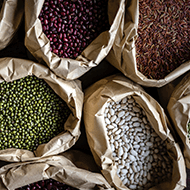
Shop with reusables
What's the deal with food packaging?
Packaging, even if it's recyclable or compostable, still end up in landfills. What we can do: refuse waste at the root so you don't have to figure out proper disposal later. Ask before acting: Is it necessary? Think farmers' markets + grocery stores + bulk bins; it's possible to buy loose produce & grains.
TAKE ON THIS CHALLENGE
SHOW LESS
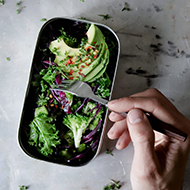
Eat without disposables
What's the problem with foodware?
Make room for the good in the world. Not all these plates, utensils, and cups that you use once & throw away, because they take up space and sit in landfills + oceans for a very long time. What’s worse is plastic foodware, especially those with
and
, are made with carcinogens that put wildlife & human life at risk.
TAKE ON THIS CHALLENGE
SHOW LESS
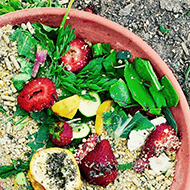
Compost & recycle
Why prioritize composting over recycling?
Composting stores carbon, which offsets CO2 in the atmosphere, helping prevent climate change. Composting repurposes any nutrients leftover to the environment. Recycling requires more carbon-emitting processes, and recyclables (plastic + paper) can't be recycled infinitely. But, recycling is way better than landfilling things.
TAKE ON THIS CHALLENGE
SHOW LESS
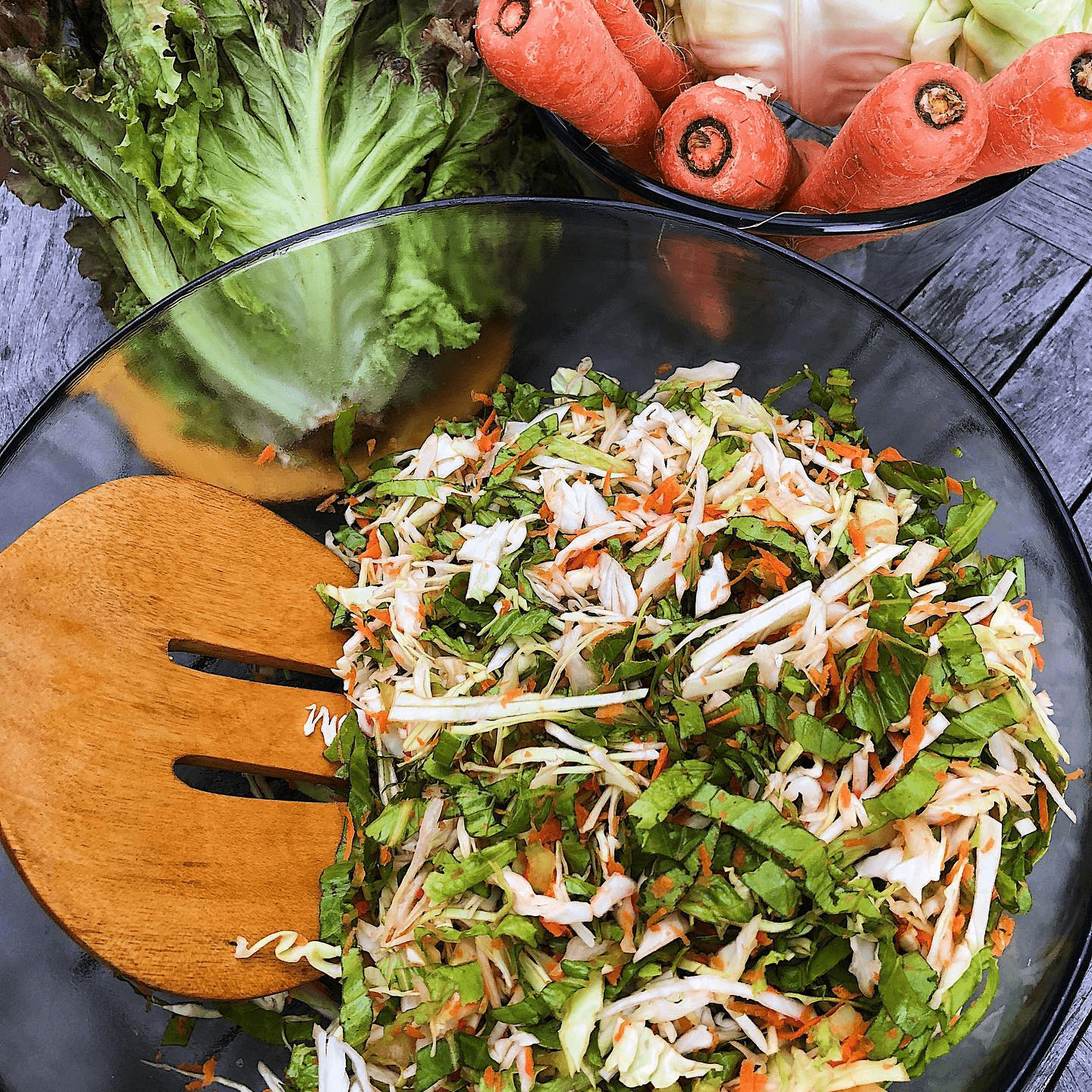
Party zero waste style
Down to party, but what's it got to do with waste reduction?
How many people do you know think about their trash? Hosting a zero waste party changes the way people see + think about waste, because YOU can show them how simple it is. As the fabulous host, have fun & open up conversations to share what you've learned. You just might inspire your guests to reduce their waste too.
TAKE ON THIS CHALLENGE
SHOW LESS
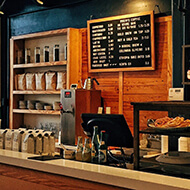
Reduce community waste
What's the point? There's always going to be waste anyways
"We don’t need a handful of people doing zero waste perfectly. We need millions of people doing it imperfectly." A few zero waste people won't solve the climate crisis. We need a whole lot more people on board. So, everything you do counts! Your actions give others permission to do the same.
TAKE ON THIS CHALLENGE
SHOW LESS
body
Did you know our skin absorbs 60% of everything we put on it?
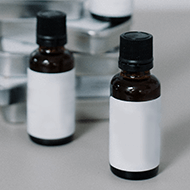
Know your products
What's in your bodycare?
~60% of what's put on your skin is absorbed into your bloodstream. There's lots of products on the market with ingredients that inhibit your natural skin health. It sucks, but information is power. Read the ingredient lists & research what those ingredients do to your body.
TAKE ON THIS CHALLENGE
SHOW LESS
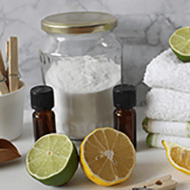
DIY bodycare
Why should I make my own?
You'll know exactly what's in it. Products with excessively long lists of ingredients on the back often include unnecessary additives that make the product thicker, smell better, or last longer. Many times, these ingredients aren't safe for your health.
TAKE ON THIS CHALLENGE
SHOW LESS
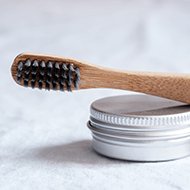
Choose safer bodycare
What's considered safer?
Avoiding known harmful ingredients in products is a good start. Ultimately, reading ingredient labels is key, because companies aren't required to disclose all ingredients in their formulations. Know what you're putting on your body. If in doubt, research or find better alternatives.
TAKE ON THIS CHALLENGE
SHOW LESS
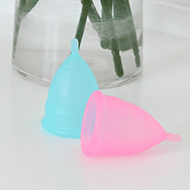
Safe periods
What's up with menstruation products?
Conventional menstrual products contain up to 90% petroleum-based plastics, are made of pesticide-laden cotton + bleached with chlorine. Women use more than 11,000(!) disposable menstrual products in their lifetime. That's A LOT of exposure to harmful chemicals & waste in landfills + oceans.
TAKE ON THIS CHALLENGE
SHOW LESS
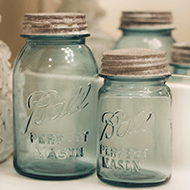
Replenish zero waste
How does waste relate to bodycare products?
Paper + plastic cannot be recycled indefinitely, but glass + aluminum can, due to how the material degrades each time it's sent through recycling. Glass + aluminum are also more widely recycled around the world than plastic.
TAKE ON THIS CHALLENGE
SHOW LESS

Contact bodycare companies
What's the point? Do they even listen?
Remember: people drive profits, something companies need. Tell companies what they’re doing well + not. They don't know without your feedback. They don't listen? Say 'bye!', let others know, + move on to another product. We're all better off supporting more caring companies.
TAKE ON THIS CHALLENGE
SHOW LESS
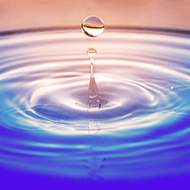
Be the influencer
Why me?
You're the real MVP. Think about how much you know now: enough to be dangerous. There's a lotta nasty stuff ruining the safety + quality in bodycare products. We can't let it slide. Many people don't know what you know, so we're calling you to spread the word. Be the champion in your community.
TAKE ON THIS CHALLENGE
SHOW LESS
wellness
Good health enables you to do the things you want and dream of.

Evaluate your health
How is self-care related to climate action?
What good can you do or fun can you have if you're not feeling your tip top? You can only be your best if you're mentally, physically, and spiritually healthy.
TAKE ON THIS CHALLENGE
SHOW LESS

Get enough sleep
Are you getting enough sleep?
You know sleep is important. We never feel great with little sleep. Getting those zzz's improves your mood, strengthens your immune system, boosts your motivation, maintains your memory retention, and makes the day better.
TAKE ON THIS CHALLENGE
SHOW LESS

Build your relationships
What makes relationships important?
Who ever said life is fun without friends and family? Nobody. We all thrive when we have people we can just be our authentic selves with. These relationships don’t just come to you on a platter though. You gotta make an effort + put in time to build, maintain, and strengthen those relationships.
TAKE ON THIS CHALLENGE
SHOW LESS

Exercise
Instead of sitting, how about getting up and moving around?
We've become sedentary with all our conveniences (e.g. chairs, elevators, cars) Remember the benefits of exercise! Feeling more positive, better sleep, ramped up energy levels, enhanced confidence, stronger immune system, and SO MUCH more.
TAKE ON THIS CHALLENGE
SHOW LESS
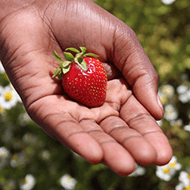
Take a sugar detox
How does sugar relate to wellness?
Sugars in the foods + drinks we intake add up. The problem? Consuming too much sugar reduces energy levels, promotes tooth decay, induces premature aging, and contributes to MANY other sub-optimal bodily reactions. The solution? Omit the problem: sugar.
TAKE ON THIS CHALLENGE
SHOW LESS

Free yourself
Why so busy?
Sometimes we get caught up staying busy + pleasing others. Days go by without us realizing. No more: we give you permission to take a break. Claim time off from the responsibilities so you can do you.
TAKE ON THIS CHALLENGE
SHOW LESS

Find peace
What does it mean to feel peace?
Hit pause on all the noise + busy-ness in your life. Breathe, spend time with yourself, and evaluate where you are. Let time 'slow' down for you to process your thoughts so you can appreciate life as it is in the present.
TAKE ON THIS CHALLENGE
SHOW LESS
clean
Cleaning generally has a bad rap, but it shouldn't be harmful or complicated.
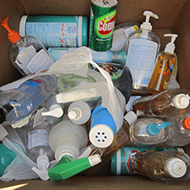
Audit your products
Why do cleaning products matter?
You can't create a safe space if you don't know what's used to clean your environment. All those sprays, wipes, cleaning solutions, powders -- we breathe them in. Respect yourself + others, and make room for safe healthy products in your environment.
TAKE ON THIS CHALLENGE
SHOW LESS
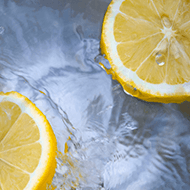
DIY cleaning products
Why should I make my own?
You'll know exactly what you're introducing to your home, cause you're choosing the ingredients. Skip the aisles of conventional cleaning brands filled with toxins; the 'natural' cleaners that aren't necessarily safer; and the safer ones that cost too much.
TAKE ON THIS CHALLENGE
SHOW LESS
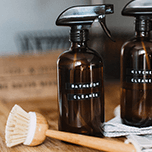
Opt for safe cleaning
What's the big deal?
There are many cleaning products that don't prioritize people's health. By shopping intentionally, you're demanding for safe cleaning products in the market. We have a right to health, so stand up for it through your actions.
TAKE ON THIS CHALLENGE
SHOW LESS
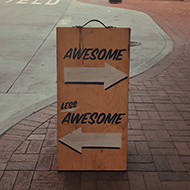
Give feedback
Why does feedback matter?
It is hard to change when we don't know what + how we can improve. Same goes for companies. They can't better serve us, their customers, when they don't know what we desire. Don't let companies decide what you need. Tell them what you want.
TAKE ON THIS CHALLENGE
SHOW LESS
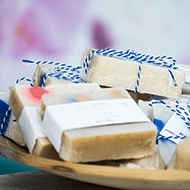
Go plastic-free reusable
What's the problem with single-use + plastic?
Single-use items + plastic contribute to ocean plastic pollution + waste accumulation, which worsens climate change. So, do the opposite. Reusables + plastic-free produces less trash and reduce carbon emissions. Claim space for the environment to do its thing!
TAKE ON THIS CHALLENGE
SHOW LESS

Host a cleaning party
Why?
Tap into people's emotions. When they experience the benefits themselves, they become invested, which is what we're aiming for. Show your community that cleaning can be simple, fun, and safe.
TAKE ON THIS CHALLENGE
SHOW LESS

Push for safer cleaning
How can I change my community's cleaning practices?
The safety of cleaning products isn't something people usually talk about. But you know more now, so share that knowledge, especially with people who have decision-making power. They impact larger groups of people, so work with them to create safer spaces.
TAKE ON THIS CHALLENGE
SHOW LESS
home
Did you know that indoor air is more polluted than the air outside?

Declutter your space
What's in your home?
It is easy to fill up large empty spaces with things that don't add much value to our lives. In fact, a published study found that household consumption accounts for 60%(!) of global greenhouse gases.
TAKE ON THIS CHALLENGE
SHOW LESS
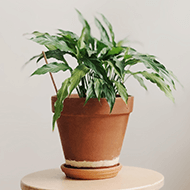
Freshen the air
What's there to freshen?
With every breath, you could be intaking volatile organic compounds, flame retardants, pesticides, among other pollutants from indoor air + dust. Plants are the real MVPs cause they can intake those pollutants, purifying the air you breathe.
TAKE ON THIS CHALLENGE
SHOW LESS
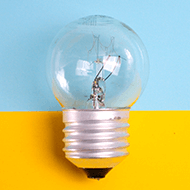
Conserve energy
Why bother?
Simple habit changes reduce carbon footprints + save money from utility bills. More importantly, you become more mindful. The simple thought of turning things off, unplugging, and renovating better builds your awareness of the environmental impact of your daily actions.
TAKE ON THIS CHALLENGE
SHOW LESS
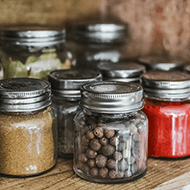
Swap out plastic
Why is plastic a problem?
The carcinogenic petroleum-based chemicals in plastic can leach into our bodies. When trashed, many end up in oceans. Plastic also doesn't biodegrade, so they're just there for 1000s of years. In the ocean, fish mistake them for food, allowing for plastic make its way up into the food we eat.
TAKE ON THIS CHALLENGE
SHOW LESS

Detox your bed
How does my bed relate to health?
You spend a 1/3(!) of your life sleeping. This is time for your body to heal + repair itself, but that's hard to do if your sleep environment is made of toxic materials, like foam, polyester, and adhesives, known endocrine disruptors + carcinogens commonly found in bedding.
TAKE ON THIS CHALLENGE
SHOW LESS

Curate a healthy home
What pollutants could be in your home?
People intake MILLIONS of air particles with every breath. Did you know indoor air can be 2-5x more polluted than air outside? Pollutants (like lead, flame retardants, and PVC) come from the things in your living space, like building products, carpet, and paint.
TAKE ON THIS CHALLENGE
SHOW LESS

Show off your home
Why should I share my home?
Changing our lives is more rewarding when we share, because others see what we have accomplished. Who knows, your actions might inspire others to make similar changes in their lives. It happens!
TAKE ON THIS CHALLENGE
SHOW LESS
travel
Your actions matter no matter where you are in the world.

Know your values
Why should you know your values?
You're going to be challenged when you leave your comfort zone, and you're gonna discover ways in which the world enables + inhibits you from living your values. However, these moments are simply hidden opportunities for you to be strong and remain true to yourself.
TAKE ON THIS CHALLENGE
SHOW LESS
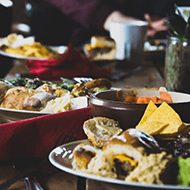
Eat out mindfully
Why does this matter?
Your diet impacts so many things: health, waste, wellness, carbon + water footprints, and community. Show up at places whose values align with yours. Being physically there is a HUGE vote of support + a form of advocating for what you care about.
TAKE ON THIS CHALLENGE
SHOW LESS
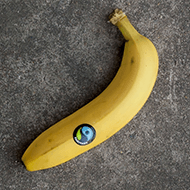
Shop fair trade
Why support fair trade?
Fair trade means workers are paid living wages + treated respectfully. This seems like common sense, no? We think so, but currently, many workers around the world are exploited to drive revenue up.
TAKE ON THIS CHALLENGE
SHOW LESS

Go outdoors
Why get outside?
People in the U.S. spend about 90% of their time indoors. Go out for a breathe of fresh air! Have you ever felt a bit more relaxed when you're outdoors? That's nature's effect. It boosts your mood + immune system all while getting vitamin D from the sun.
TAKE ON THIS CHALLENGE
SHOW LESS

Refuse single-use
Why focus on refusing single-use?
Ya'll, here's the truth: if something is used once + thrown away, it's single-use, regardless if the item is compostable. This is a HUGE waste of resources, especially when they're used for less than several minutes & tossed without another thought and just problematic.
TAKE ON THIS CHALLENGE
SHOW LESS
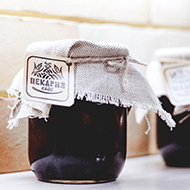
Gift responsibly
What impact does this have?
We can't force people to change, no matter how deeply we want them to. Instead, we can encourage + support. Gifting something *useful* is an easy way to introduce others to new products + makes it accessible for them to change their habits.
TAKE ON THIS CHALLENGE
SHOW LESS

Affirm your interests
Why should I talk about my interests?
There's something powerful about telling someone you care about something. It creates a sense of confidence + certainty. Try it. Lead by example & show people that it's okay to care about something & to be proud of it.

